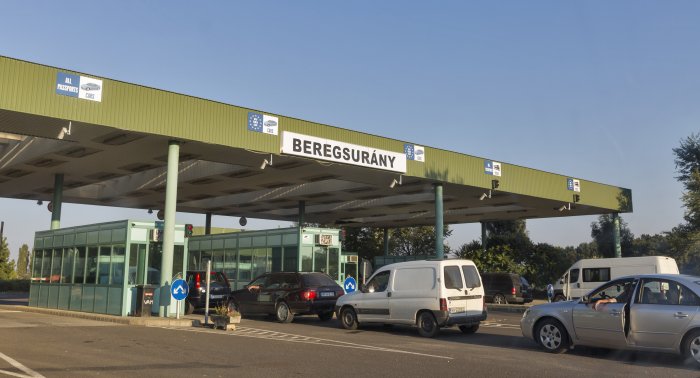‘Vital’ Role of U.S. Firms in Hungary’s Economic Development

During the past decades, Hungary has taken on a strategic role for U.S. companies in the field of trade and investments. The Hungarian Investment Promotion Agency (HIPA) explains how that has come about, and details some of the results.
A stable business environment, access to the EU markets, availability of talented workforce, developed infrastructure, EU and state incentives were among the most important factors of the location selection process for companies such as GE, BlackRock, IBM, Citi, ExxonMobil, BorgWarner etc.
U.S. companies have had a vital role in the development of the market-based Hungarian economy. The continuous development and the cooperation networks of these corporations has had a significant impact on several industries and local communities throughout Hungary.
The United States is the second largest investor in Hungary after Germany, with around 1,400 American companies employing more than 100,000 people and with more than USD 12.4 billion in FDI stock in 2016 (15.3% of total FDI stock of Hungary, according to the National Bank of Hungary on March 25, 2019, based on data from 2016).
Between 2016-2018, HIPA supported 39 projects from the States with a total investment volume of more than EUR 700 million. These projects in the field of manufacturing or service activities will create almost 7,000 new jobs in the coming years. The portion of projects of a high added value is significant.
The number of American investment projects belonging to the “Invented in Hungary” category is growing: based on the latest investment decisions, five out of ten R&D projects will be implemented by U.S.-based information, communication and technology (ICT) companies, for example Flowserve, Itron, and Cloudera.
Bilateral commercial trade reached USD 5.69 billion in 2018, showing a 5.4% increase compared to the previous year. According to the most recent data of the Hungarian Central Statistical Office, America is the third most important trade partner of Hungary outside of the European Union. With more than USD 3.5 bln of exports in 2018, America was the 11th most important export market for Hungary. Imports came to more than USD 2.1 bln, putting the United States at 15th place on the list of import source countries.
U.S. Giants
U.S.-based companies are present in various economic sectors of Hungary, from general and advanced manufacturing segments to a great variety of high value-added services. By employment, U.S. operations in the electronics, vehicle and engine parts manufacturing sectors play the most determining role.
Ten giants (Flex, IBM, GE, Aptiv Group, Jabil, Lear, Adient, Arconic, Borg Warner, and National Instruments) employ more than 1,500 employees per company, with locations stretching from Tatabánya to Debrecen.
U.S. companies produce and/or develop a complex and wide range of products and services in Hungary, and are keen to install the most advanced technologies to boost productivity. On the other hand, they are open to cooperate with local vocational and tertiary educational institutions in order to train and employ their (future) employees.
The services sector gained sizeable proportion amongst new projects during the recent years; around half of U.S. investment projects were in the field of ICT, business services (BSC) or logistics. U.S.-based ICT companies have traditionally had a strong presence in Budapest (for example IBM, Microsoft, Oracle, HP, GE, and Itron).
HIPA has provided one-stop-shop services to U.S. BSCs (e.g. ExxonMobile, Ford, Thermo Fisher Scientific, and IFF) in establishing or expanding their operations in the field of finance, IT, HR, customer support related regional and/or worldwide activities.
Although these companies are fierce competitors on the global financial market, the long standing local subsidiaries of Citi and Morgan Stanley are pioneering in sectorial cooperation with their fellow financial newcomers MSCI (2013) and BlackRock (2017).
Streamlining Processes
One of Hungary’s competitive advantages over other countries in the region is the government’s strong commitment to streamlining business processes and increasing the competitiveness of both SMEs and large corporates in Hungary.
To help achieve this, HIPA offers wide-ranging incentives to facilitate foreign direct investments and reinvestments by local enterprises. The main types of incentives are cash subsidies (either from the Hungarian government or from EU funds), tax incentives and low-interest loans.
The government considers technology-intensive investments and R&D investments as priorities in the field of investment promotion, providing VIP cash subsidy for such projects. In addition to these new forms of subsidies, business services-focused and “traditional” asset-based incentive schemes are also available.
In order to be eligible for a VIP cash subsidy for business services activities, investors should create at least 50 new jobs in all regions of Hungary which can be subsidized, in the case of investments aiming at the creation or the expansion of Regional Business Services Centers.
For asset-based incentives, the investment in the “most preferred counties” (Nógrád, Szabolcs-Szatmár-Bereg, Békés, Borsod-Abaúj-Zemplén) should reach at least EUR 5 mln in volume, creating 50 new jobs. In the better off “preferred counties” (Vas, Zala, Veszprém, Somogy, Baranya, Tolna, Bács-Kiskun, Csongrád, Jász-Nagykun-Szolnok, Hajdú-Bihar, Heves) the investment should reach at least EUR 10 mln in volume, creating 50 new jobs.
In “developed counties” (Győr-Moson-Sopron, Komárom-Esztergom, Fejér, Pest) the investment should reach at least EUR 20 mln in volume, creating 100 new jobs.
Investments implemented by large enterprises can only be subsidized in the Central Hungarian region if the investment is located in an area which can be subsidized and the investor sets up a new establishment or expands the activity of the company with what is fundamentally a new activity.
Innovation Center
In addition to the “Made in Hungary” type of investment projects, we increasingly focus on the “Invented in Hungary” type of opportunities, with the aim of becoming the innovation center of Europe.
From the beginning of 2017, favorable changes have been introduced in the non-refundable VIP cash grant system in compliance with the requirements of investors with the purpose of supporting R&D and technology-intensive investments.
The aim of the new form of VIP cash grant is to support capacity expansion and technology-intensive investments without creating new jobs. Those companies which already have 100 employees in Hungary and are considering a technology-intensive investment have the opportunity to benefit from VIP cash grant. The eligibility criteria is to invest at least EUR 20 mln and to achieve 30% increase of revenue and/or wage costs within a four-year period.
One of the main objectives of the VIP cash grant system is to promote R&D activities among large enterprises and the creation of R&D centers in Hungary. The government is able to grant aid for R&D projects anywhere in the country up to the maximum intensity of 25%. To be eligible, investors should reach at least EUR 3 mln worth of R&D project-related expenditure during a minimum of one and a maximum of three years and increase the R&D headcount by 25 employees.

Brain Bar Panel Discussion Hosted by HIPA
HIPA hosted a professional discussion at Brain Bar, the biggest European festival on the future held at Corvinus University of Budapest. The panel, entitled “Earning a Spot on the World Map of Finance: Why Is Hungary So Attractive For Big Companies?” took place on Friday, May 31. C-level executives of U.S. companies such as BlackRock, MSCI, Morgan Stanley and Citi joined Róbert Ésik, the president of HIPA, to discuss the experiences and prospects of U.S. financial institutions in Hungary.From left to right: Róbert Ésik (HIPA president); Melanie Seymour (head of global client service at BlackRock); Ákos Janza (head of the Budapest Office at MSCI Inc.); Beáta Juvancz (managing director, finance at Morgan Stanley); and Kevin A. Murray (CEO for Central Europe and country head for Hungary at Citi) with Yusaf Akbar, Associate Professor at CEU (moderator of the panel).
SUPPORT THE BUDAPEST BUSINESS JOURNAL
Producing journalism that is worthy of the name is a costly business. For 27 years, the publishers, editors and reporters of the Budapest Business Journal have striven to bring you business news that works, information that you can trust, that is factual, accurate and presented without fear or favor.
Newspaper organizations across the globe have struggled to find a business model that allows them to continue to excel, without compromising their ability to perform. Most recently, some have experimented with the idea of involving their most important stakeholders, their readers.
We would like to offer that same opportunity to our readers. We would like to invite you to help us deliver the quality business journalism you require. Hit our Support the BBJ button and you can choose the how much and how often you send us your contributions.








